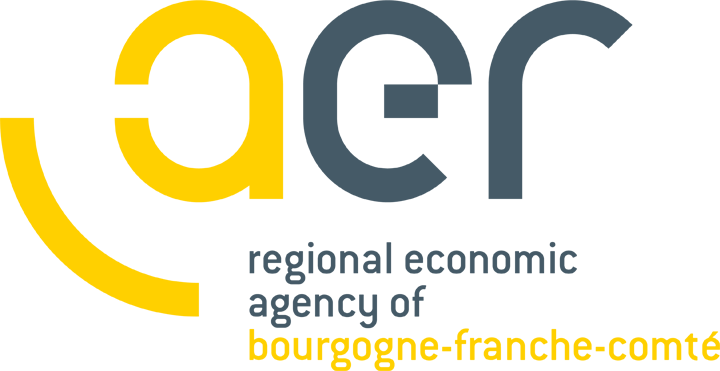Summary of the AER BFC technical workshop on cooperation between competitors in the field of environmental, ecological and societal transitions
To delve further into the theme of the 2022 edition of “Create Tomorrow,” two days to innovate on “Collective Intelligence, a Powerful Lever for Innovation,” AER BFC organized a technical half-day on Thursday, May 29th, at ESIREM in Dijon. The session was led by Martin DUVAL, Co-Founder and Co-President of Bluenove, who also spoke at the “Innovate Faster Together” conference. As part of Create Tomorrow, Innov’tour, the topic was “Collaborating with Competitors to Accelerate Transitions.”
Context
- Not enough attention is given to the fact that certain milestones in transitions (energy, ecological, societal) will be crossed through “collaboration between competitors.”
- Each actor often tries to solve issues “on its own,” with its own means (naturally more limited), or in a spirit of pure commercial competitiveness and marketing advantage, such as eco-design, waste recycling, sobriety, impact on climate, biodiversity, etc.
- They could have more room for maneuver and ambition by considering cooperating with their competitors on these issues.
- While the concept of “coopetition” has existed for a long time, it has mostly been practiced in the context of agreements on new markets to develop, optimization of purchases, and sharing of infrastructures. It needs to be reconsidered in the light of today’s climate and ecological emergencies.
The Competitor: Often Neglected Stakeholder…
- One of the underexplored fields of Open Innovation, now needing a profound reevaluation in the context of current environmental and societal challenges.
- Among the stakeholders to involve, competitors are often the last consideration, as partnership approaches are the most complex to envision and animate. However, their potential impact is perhaps the greatest and fastest.
- Not enough dedicated methods for collaboration in this specific context, not enough shared and communicated cases, and not many publications available to date, whether by practitioners, experts, consultants, or academically.
Several examples show that it is possible: Citeo and eco-organizations, the Air Liquide / Schneider Electric / Valeo / PSA coalition during the Covid crisis, etc.
Everything Remains to be Invented
- Coalitions for larger-scale citizen consultations?
- Methods for facilitating creative workshops or Design Thinking for competing participants,
- Seminars between CSR and Innovation departments of competing companies to discuss partnership possibilities?
- Etc.
Following an introductory moment on the subject, three lines of thought were initiated in subgroups
- Identify subjects, themes, and issues particularly conducive to such collaboration
- Identify obstacles and solutions to overcome them
- Imagine how to implement such initiatives
For more information on this introduction: see the article on Linkedin
General Summary of the Technical Workshop Structured Around the 3 Sub-Workshops
The question of collaboration between competitors in the fields of environmental, ecological, and societal transitions is rich in nuances and complexities. This collaboration is often seen as a contradiction in terms, given the competitive nature of markets. However, the workshops demonstrated that it is not only possible but also desirable to bring competing companies together around common challenges.
Initiating Collaboration Opportunities
The first workshop focused on opportunities to initiate such collaboration. Despite regulatory obstacles and risks related to competitive dynamics, a voluntary approach can break down these barriers. Collaborative projects on a national scale, especially in R&D, show that cooperation can lead to a positive evolution of regulations. Local initiatives, such as optimizing sourcing or increased citizen involvement, can also serve as springboards for cooperation. It was suggested to highlight successful examples of such collaborations to inspire and measure progress.
Overcoming Collaboration Obstacles
The second workshop examined obstacles to this collaboration, ranging from a lack of a culture of cooperation to fear of change and impacts on revenue. The solution lies in a series of educational and organizational measures. Specific training programs can help redefine the meaning of collaboration, especially in controversial sectors. Well-managed confidentiality and the role of trusted third parties, such as professional unions, can help overcome relational and operational challenges. Education at the university level on cooperation and competition could also pave the way for a more collaborative corporate culture in the future.
Themes Conducive to Collaboration
The third workshop highlighted several areas where such collaboration would be particularly beneficial. Resource sharing, skills and waste transfer, and adaptation to legislative constraints or crises are fertile grounds for collective action. A label could even be created to recognize and reward effective cooperation between competitors.
Conclusions
In summary, to transform this ideal collaboration into reality, there must be shared willingness, educational actions, trusted third parties, and a clear regulatory framework. Only then can competitors overcome their differences and work together to address the environmental, ecological, and societal challenges that our world must face.
